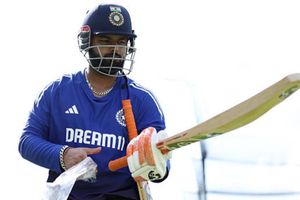Over the years, there have been players who haven’t played much red-ball cricket but got fastracked because of their talent and performances in the Indian Premier League (IPL) and on other formats in international cricket. Pace sensation Mayank Yadav and fast-bowling all-rounder Nitish Reddy seem to be two such prospects ahead of the Border-Gavaskar Trophy. Impressed with their performances in the recently concluded T20I series against Bangladesh, the two are among four named in travelling reserves for home Test series against New Zealand. There is also a possibility that they will be on a flight to Australia for Border-Gavaskar Trophy 2024-25 even if they are not named in the Test squad. Skipper Rohit Sharma has left the door ajar for the two youngsters in case there is an unfortunate injury in the long five-Test series.
“I understand they have not played that much. We want to create bench strength. If we want to fast track someone, we want to fast track them,” Rohit said on the eve of the first Test at M.Chinnaswamy Stadium, Bengaluru.
“If someone gets injured we want them to step in. Nice to have them around, have a chat and see how they see test cricket. It is important to try and build them gradually. Trying to monitor them and what they can offer,” he added.
Meanwhile, Rohit remained tight-lipped on the playing XI for the first Test. He wants to see the pitch and assess conditions first as rain threat looms large on the series opener.
How Mayank and Reddy fared against Bangladesh
Mayank who took the IPL 2024 by storm with his blinding speeds did not touch the 150kmph mark in the Bangladesh series as he returned to competitive cricket after injury. The Delhi pacer claimed four wickets and conceded runs at an impressive economy rate of 6.91 runs per over.
21-year-old Reddy who showed flashes of brilliance in his debut IPL season for Sunrisers Hyderabad (SRH) got a chance as well. He scored 90 runs including a 74-run knock in the second T20I. With the ball, he bagged three wickets. The Andhra Pradesh-born cricketer’s economy rate was under eight runs per over.
ADVERTISEMENT










